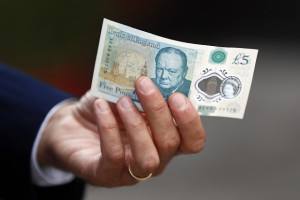The Spectator
Charlotte Gill
 Some will scoff when I say that we are in the first wave of an animal rights movement which will see our furry friends elevated to a new status in our society. But it’s true. In the last few years, concern for animal welfare has grown. Even the last week has demonstrated this. Take the fury which greeted the decision of a Japanese ice rink to entomb 5,000 dead fish beneath skaters’ feet. Or the scores who complained about the torture of live insects on ITV’s I’m A Celebrity. And those upset about the animal-fat loaded £5 note. These isolated events speak volumes about a new moral reality we’re entering.
Some will scoff when I say that we are in the first wave of an animal rights movement which will see our furry friends elevated to a new status in our society. But it’s true. In the last few years, concern for animal welfare has grown. Even the last week has demonstrated this. Take the fury which greeted the decision of a Japanese ice rink to entomb 5,000 dead fish beneath skaters’ feet. Or the scores who complained about the torture of live insects on ITV’s I’m A Celebrity. And those upset about the animal-fat loaded £5 note. These isolated events speak volumes about a new moral reality we’re entering.
The animal rights revolution is coming, at a pace the pro-meat lobbyists just can’t get their heads around. When I first gave up meat as a teenager, people laughed and told me I would soon abandon this phase of rebellion. That didn’t happen, though; in fact, many others have since joined the movement. The UK now has 1.68 million vegetarians, and the number of vegans has risen by 360 percent over the last decade.
There are plenty of reasons why people are joining the cause – all of which make total sense, to the annoyance of rabid meat eaters. Yet to rationalise their dietary habits, the carnivorous still rest on the tired arguments of pleasure, tradition and nature. But the truth is that all of these are as outdated as other phenomena they once justified: gladiator games and incest, to name a few.
What I believe is pushing animal issues into people’s consciousness is a new Maslowian enlightenment. Meat serves as a primary need when resources are low for populations, but once people have food and shelter and their other needs are met, there is time for introspection – which can lead to a redressing of age-old behaviours.
In the UK, it is high time we reflected on the excessive consumption of meat, which is not just unnecessary, but wrong. It discredits our intelligence that we eat vast quantities of meat that has been reared in such cruel, mechanised ways. Our senses have been dulled and we have become autonomous; brainlessly crunching through the world’s species without a second thought.
So mindless are our meat-eating habits that no one questions the logic behind why we consume certain animals, most of whose fate rests upon cultural relativism. This means we sit crying over China’s Yulin ‘dog meat festival‘ while defrosting a chicken pie. Our species-specific treatment of animals runs contrary to the way we treat humans; as equals regardless of their abilities. Never is there acceptance or acknowledgement that animal minds have potential. Their destruction runs counter to evolutionary theory, which argues that no species is ever a finished product – any more than cavemen were the completion of our own kind.
The only way to make people abandon meat is to expose them to the processes that produce it, and to ask whether they are comfortable with them. Our complacent attitude is brought about by the distance between the mechanisms of slaughter and the sight of our own plate. But shove hideous ITV challenges into the public conscience and something hits home. We realise that we do not like cruelty to animals, any more than we enjoy watching gladiatorial games.
The public reactions to the Japanese ice rink, I’m A Celebrity, and the new £5 note are great symbols of animal rights flooding into the mainstream. Changes will be brought about most by young people, who are more likely than older generations to subscribe to animal-friendly diets. Inevitably they will hold the reins over the food industry in years to come, quietly driving meat out of general consumption. Tools like Instagram, which have greatly sold the young into veganism, will encourage introspection in others; acting as magnifying glasses to animal issues.
These are the revolutionary waves that will change the way we interact with our fellow species, which will no longer be seen as inferior – but different to ourselves. Enjoy your Christmas turkey now; all the signs are there that slowly, but significantly, the world is changing dramatically.

